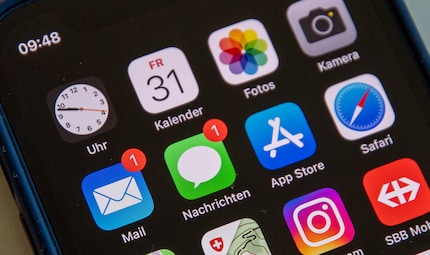
Background information
Life Is Strange was my substitute home when I had to leave my real one
by Cassie Mammone

Every year, I resolve to spend less time in front of the screen. It has never worked. I analyze why that is and hope that the attempt will finally succeed through the findings.
New Year is traditionally the time for good resolutions. In the 21st century, another classic has established itself alongside evergreens like losing weight or quitting smoking: Spend less time on the Internet, on smartphones, and on screens in general.
I've been an Internet addict since I first entered a chat room in 1997. Since then, not a year has gone by that I haven't tried to curb the problem. I've stuck to dialing in via phone lines because it was cumbersome and expensive. I deleted my Facebook account back in early 2011 - not only, but also because of my addiction. I didn't have a smartphone for a very long time because I knew I was susceptible to its magical pull. I set up blocking periods with the router and in the operating system. It all did little good.
It's one thing to make resolutions. We almost only make resolutions for things that are difficult - we don't need resolutions for the easy ones, we master them as we go along. Often we don't have a concrete plan on how exactly the big resolution should be implemented. And only very rarely is there really a need. There are no serious consequences if we drop the resolution. In between, we also forget why the intention is so important to us. Then we think, "Oh come on, what the heck," and the resolution goes down the drain.
So resolutions are difficult to keep. In the digital realm, it seems especially difficult to me. Because by now I've mostly gotten rid of my bad habits and have my life under control. But that doesn't apply to the digital realm.
Why is it so difficult to reduce screen time? One reason is certainly technological development. If the Internet were still the same today as it was in 1997, I'd probably have been bored with it for many years. The excitement of every new e-mail, every ASCII type in chat, and every home-made web page would have worn off eventually. I would look at an @ symbol spinning around itself until a meditative inner peace set in and I fell asleep contentedly.

But the explosion of possibilities prevented me from getting used to it. While drinking coffee in 2022 is the same as in 1997, Internet use is something completely different.
But it's not just the ever-growing possibilities. When I try to reduce my screen time, I'm fighting alone against an overwhelming opponent: the entire Internet tech industry.
The Netflix documentary "The Social Dilemma" brought the problem home to those who weren't familiar with it. Google (aka Alphabet) and Facebook (more recently Meta) make their money from advertising. To do that, they sell users' attention. That, in turn, means they do everything they can to increase usage time and frequency. So they want exactly the opposite of what I want when I set out to reduce screen time.
This has been going on for many years, and over time certain mechanisms have proven to be particularly effective. Psychological triggers are specifically exploited. One such trigger is Likes - a pseudo-reward that doesn't really satisfy, which is why we always want more of them. Or that I can pull at the top of the page to refresh. It works like a slot machine: I know something will happen, but I don't know what. Maybe I'll get lucky, maybe I won't.
I encounter these triggers everywhere - I can't avoid them by avoiding Facebook.

On top of that, there's another difficulty. I can resist temptations - but not every second. However, since the devices are always ready for use, that would be necessary.
In "offline life," things usually work differently. Temptations occur at certain moments, and if I stay strong in that moment, I get through it. If I decide not to drink alcohol for a week, I just have to resist the temptation to buy alcohol in the store. At home, it's off the table - I don't have to resist every minute. Try that with the Internet. It's like having the beer already open next to the sofa. No chance.
If I decide not to do something, I have the feeling that I have to do without. It is therefore very important to remind myself that I am losing something, but that I am also getting something in return. For 15 years I tried not to drink alcohol when I was alone. I only managed to do it when I realized that it was pure wellness. The feeling of inner peace, clarity, balance: it's worth more than a glass of beer.
It would be easy to leave the house without a smartphone every now and then. But what if someone were to call just then? Yes, what would be then? Nothing at all! This constant fear of missing something is just ridiculous. And we are fully trained for it. Homo sapiens becomes homo fomo (fear of missing out).
What do I conclude from all this? First: I want to eliminate the permanent temptation. To do this, I'm going to do more things where it's impractical, inappropriate, or even impossible to constantly look at my smartphone or otherwise check what's on the web. This includes pretty much all kinds of sports. Or playing music, especially in the practice room without cell phone reception. I'll be reading more on paper and less on screen.
Most importantly, I'm going to remind myself every day that it doesn't matter if I don't always respond to everything immediately or if I miss something in between. If there is ever a problem because of this, I can explain my behavior. I am sure that most people will understand because they know the problem well themselves.
My interest in IT and writing landed me in tech journalism early on (2000). I want to know how we can use technology without being used. Outside of the office, I’m a keen musician who makes up for lacking talent with excessive enthusiasm.